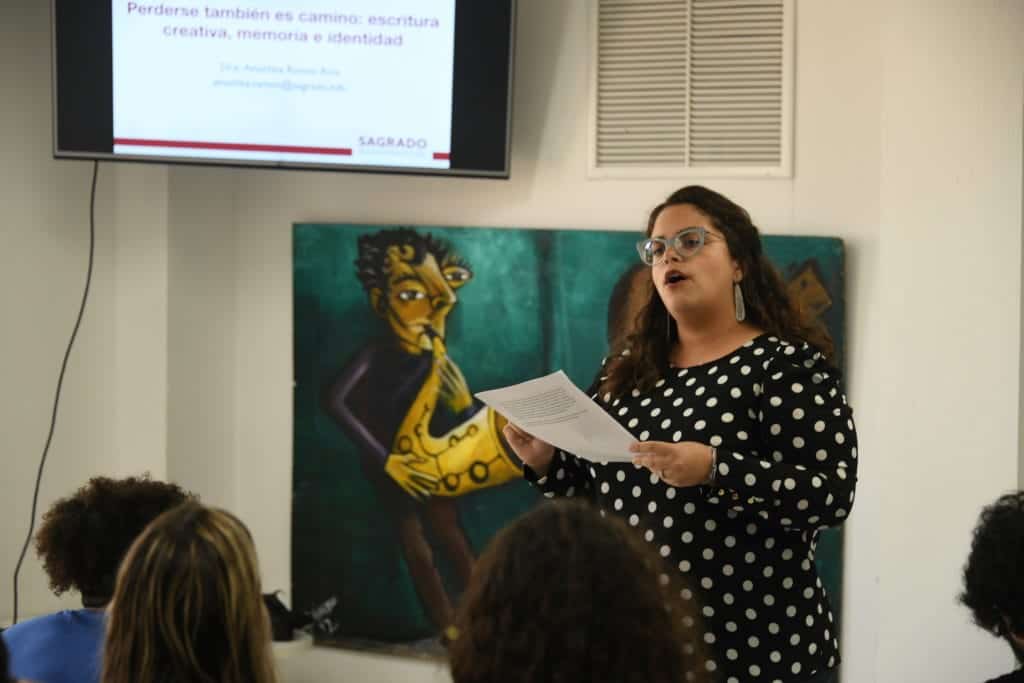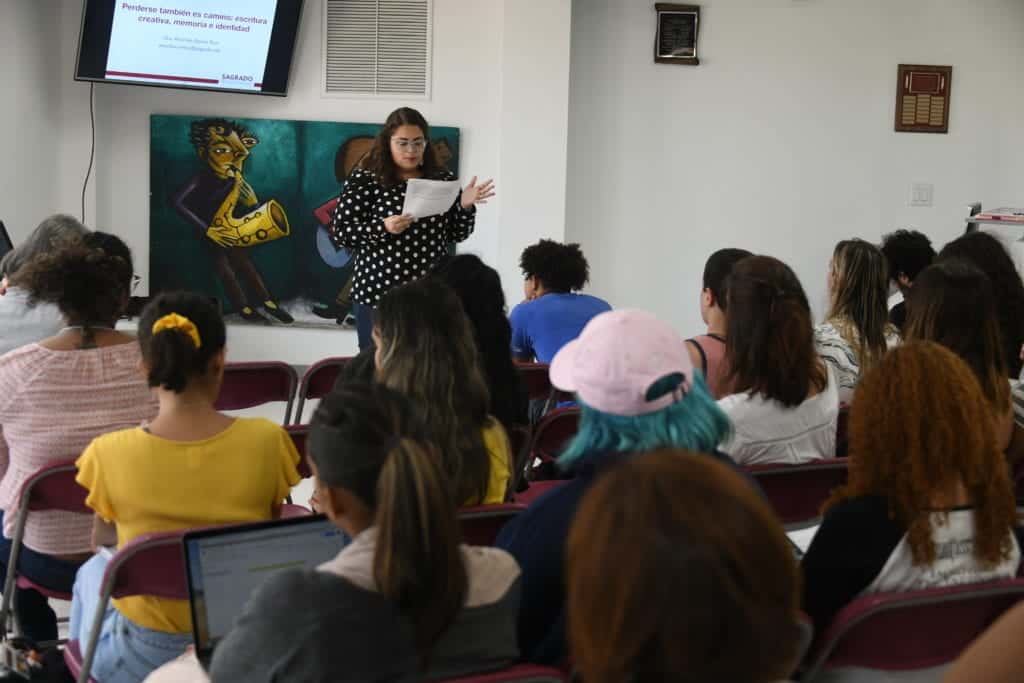The director of Sagrado’s Interdisciplinary School of Humanistic and Social Studies, Dr. Anuchka Ramos Ruiz, was the speaker of the 4th International Talk.

By Liz Yanira Del Valle
Collaborator
Spanish poet Antonio Machado left us some famous verses: “caminante no hay camino, se hace camino al andar” (Walker, there is no path; you make the path as you walk). In such walking, Caribbean writer from Ponce, Puerto Rico, Dr. Anuchka Ramos Ruiz, insists from her own experience that “getting lost is also to make way.”
About that coming and going, the director of the Interdisciplinary Faculty of Humanistic and Social Studies (FIEHS) also spoke at the 4th International Talk entitled “Getting lost is also the way: creative writing, memory and identity in my international experience”.
“It’s okay to go astray from time to time,” “Alterations are part of the history we build,” “The important thing will be to reach the destination, but it’s more important to know that fate, just as our memories, is also mutant: it can always change,” she said after summarizing part of her student history between Spain and the United States.
In the voice of this former Sagrado student, both to discover oneself and to write, “you have to go out into the world; more importantly, we have to leave the world we invent for ourselves.”
This Doctor in Culture and Literature Studies from the University of Santiago de Compostela discovered herself as Puerto Rican and Caribbean-born precisely far from her homeland.
“My international experiences allowed me to ‘lose myself’ and ‘discover myself’: to understand that, without being insular, to think, live, love and produce in an islander, Puerto Rican, and Caribbean key is a way of being that is as valid as any other, as urgent as any other, as necessary [to be written] as any other,” said the writer, who confessed that, after spending a year pursuing a second doctorate at the prestigious University of Notre Dame in Indiana, she decided to return to the Island.
Dr. Anuchka Ramos Ruiz, director of the FIEHS
Returning took time, because at first it felt like failure.
“I write about all the places I lived in and those I visited to convey how I felt them from my own subjectivity, and to accompany those who have been afraid to leave or stay on this island; because either of those two decisions is fine,” said the author of the novel “No me quieras” (Don’t love me) and the poetry book “Autopista” (Highway).
“In my case, leaving was also a way to go home (although I got lost many other times before arriving). In my writing proposal, I investigate family memory, post-memory, and oral tradition as forms of the unknown,” said the author, who wrote her books outside Puerto Rico.
In fact, she commented that her novel was the product of not being in that new destination she had chosen, referring to Galicia.
“My identity, my tastes, my ideas, and my relationships had been designed based on a Puerto Rican enclave from which I had so much wanted to leave.”
Dr. Anuchka Ramos Ruiz
The writer read fragments of her novel and her poetry book before the crowded audience. She also advised Sagrado students to have, to the extent that they can, study or work experiences abroad.

“For better or worse, it is important to distance oneself from thought, from territory. That abstraction is necessary. It is a privilege, we don’t know exactly why, but it is”, she concluded.